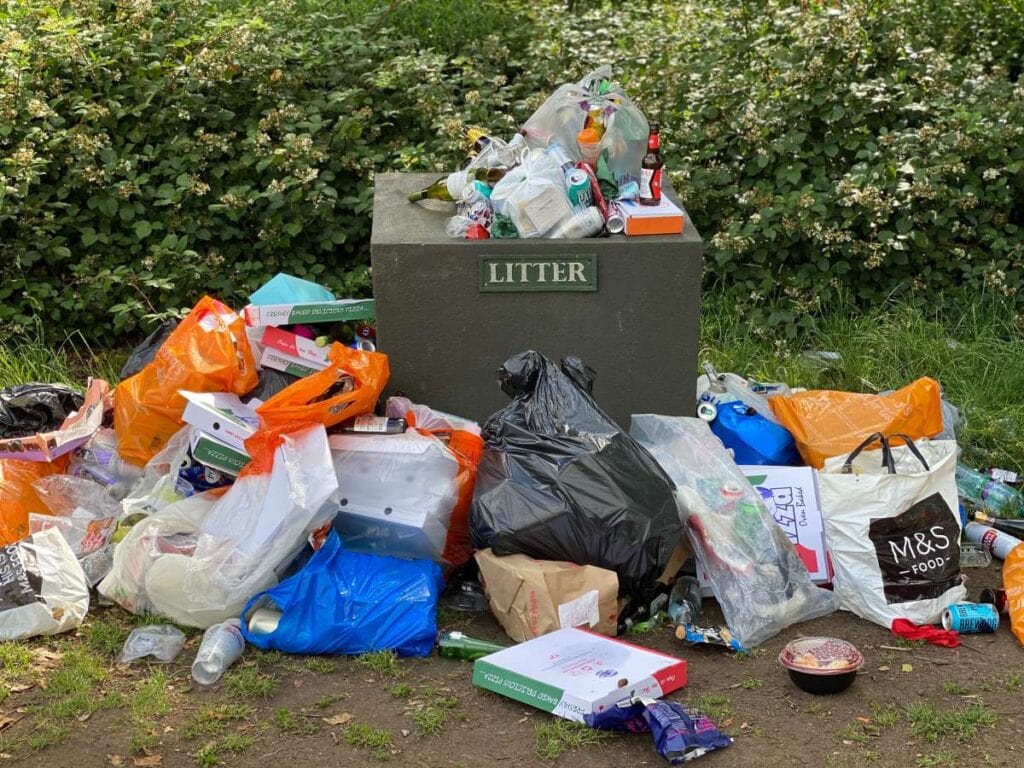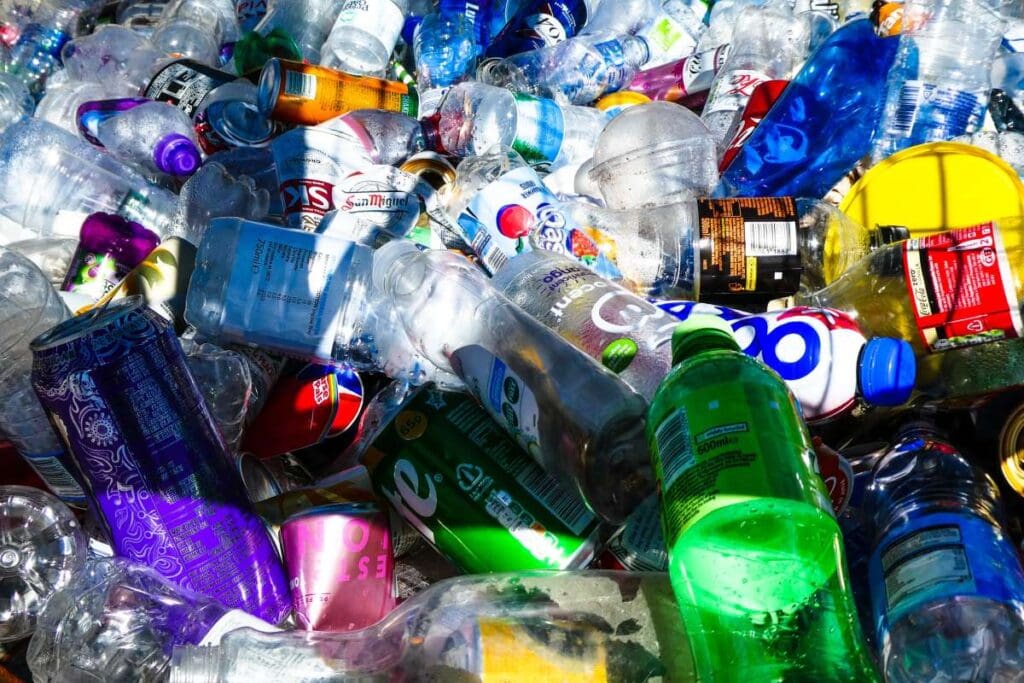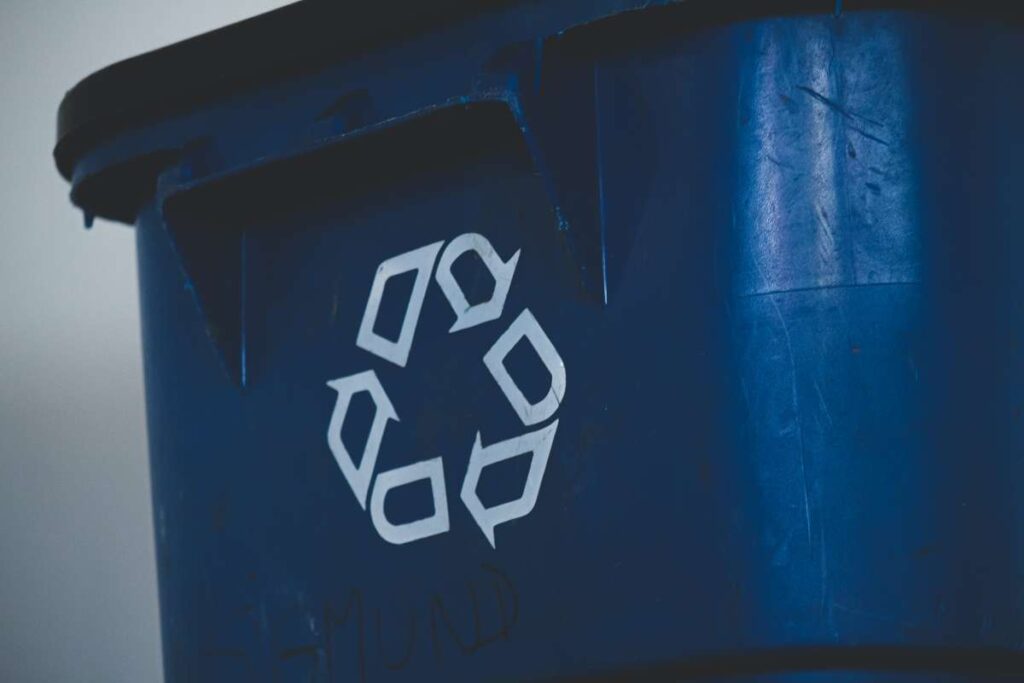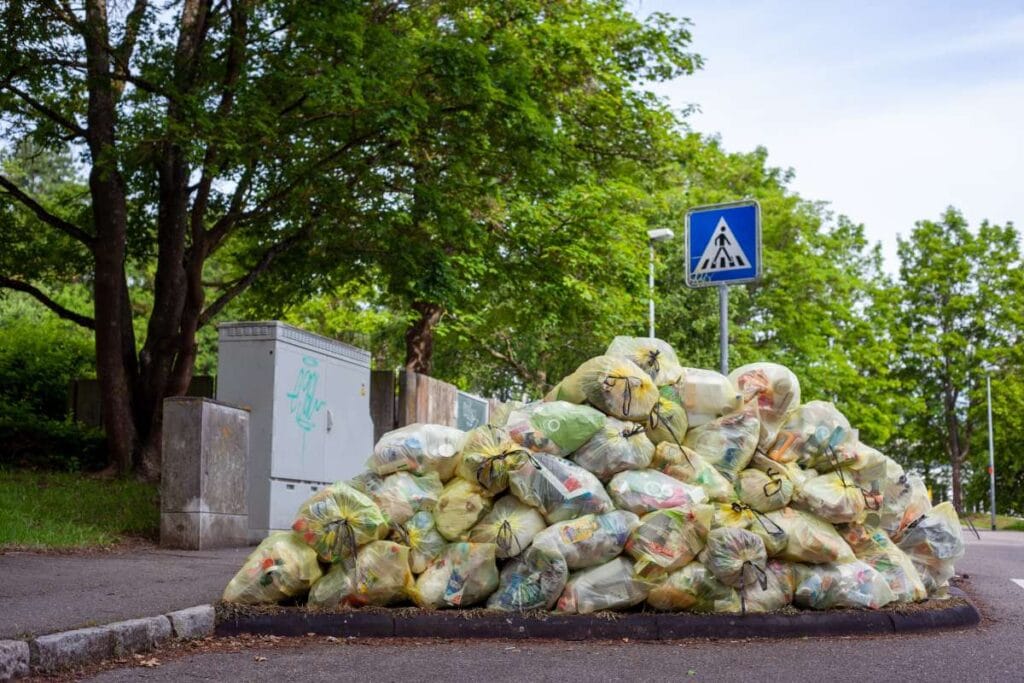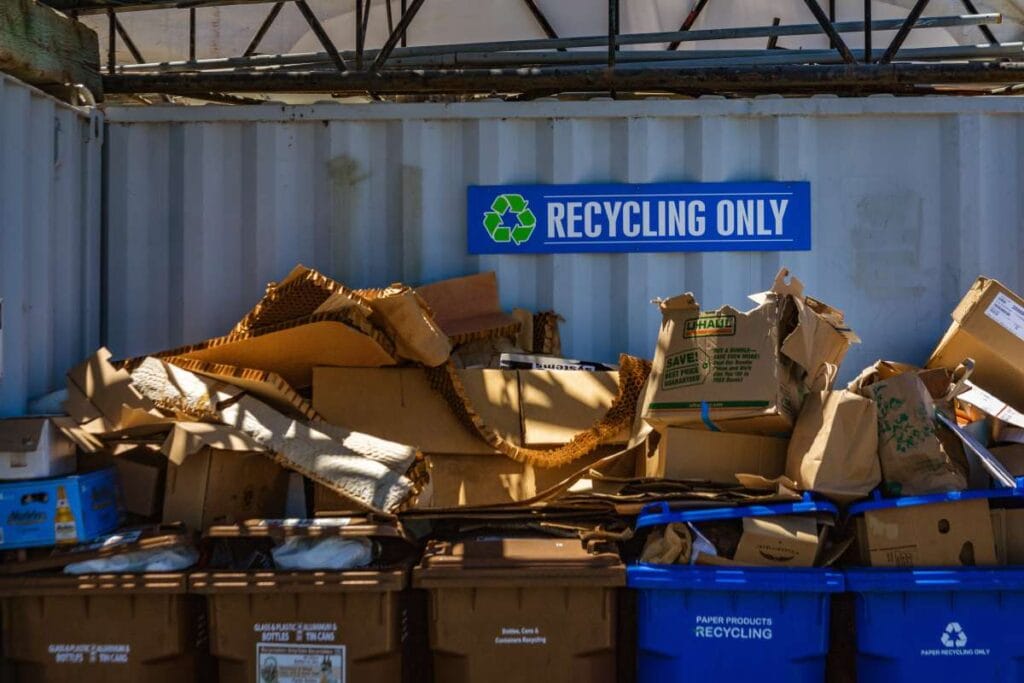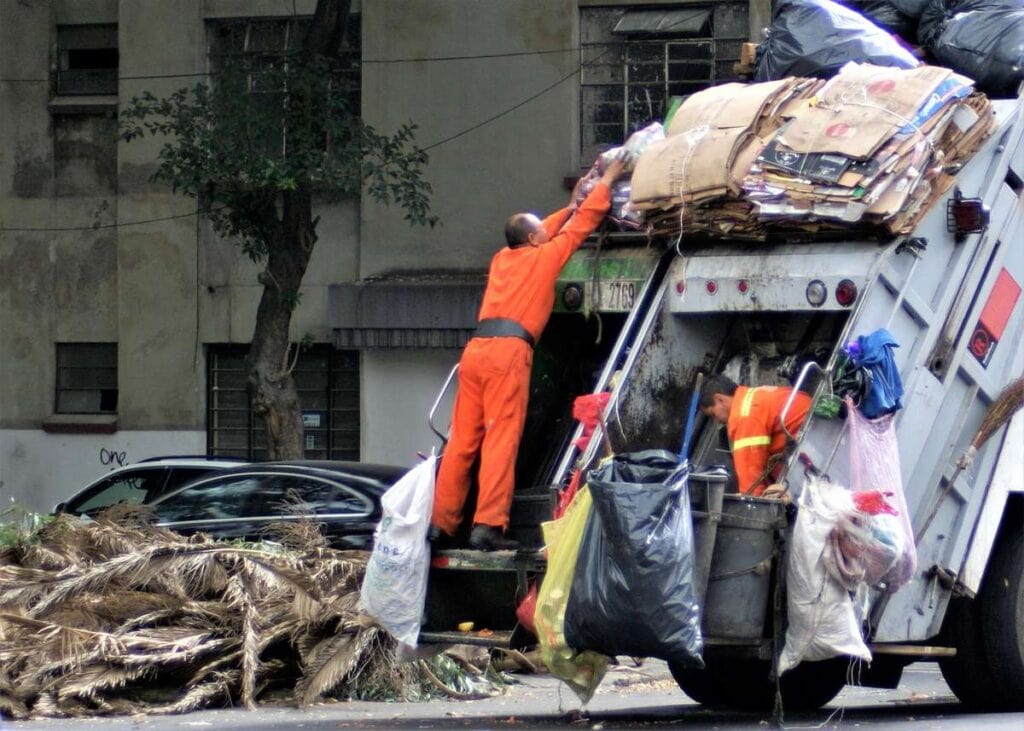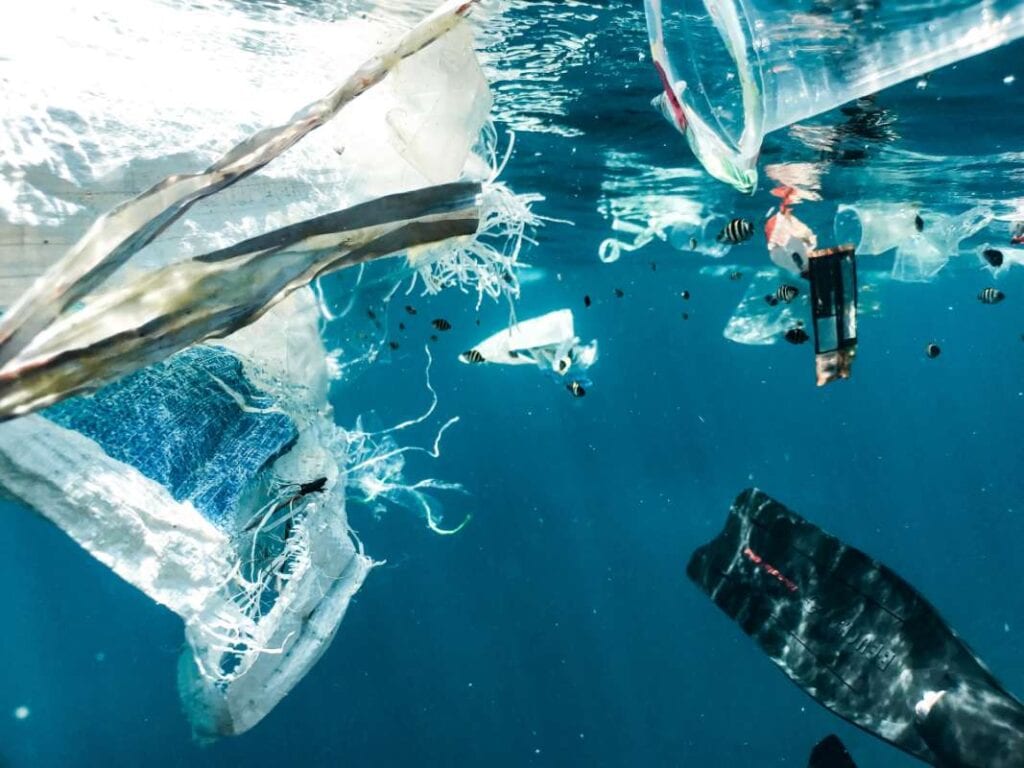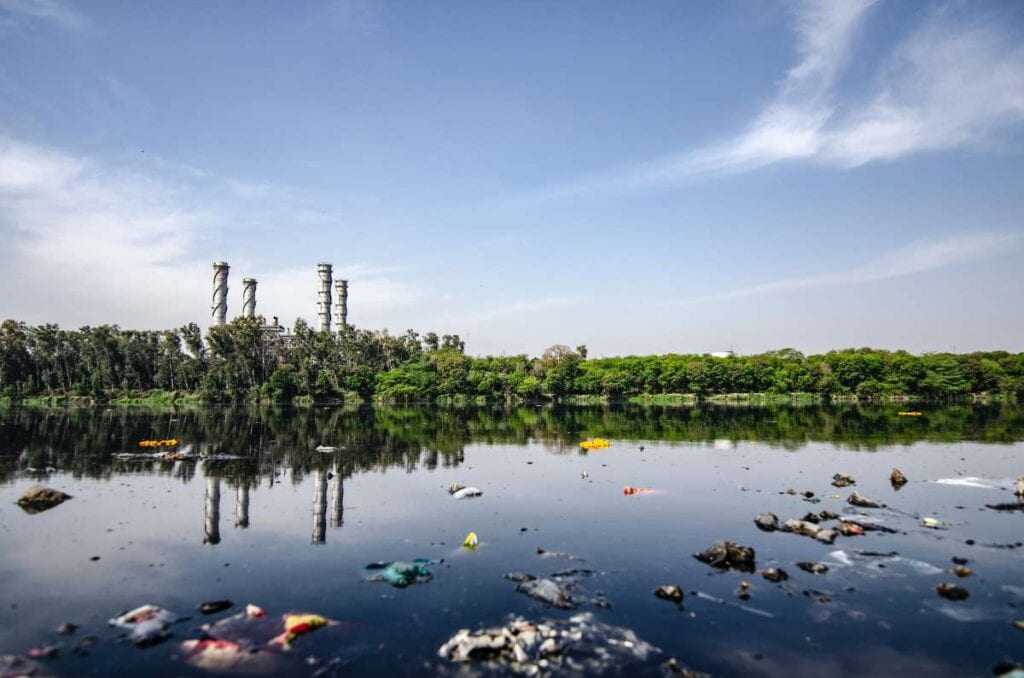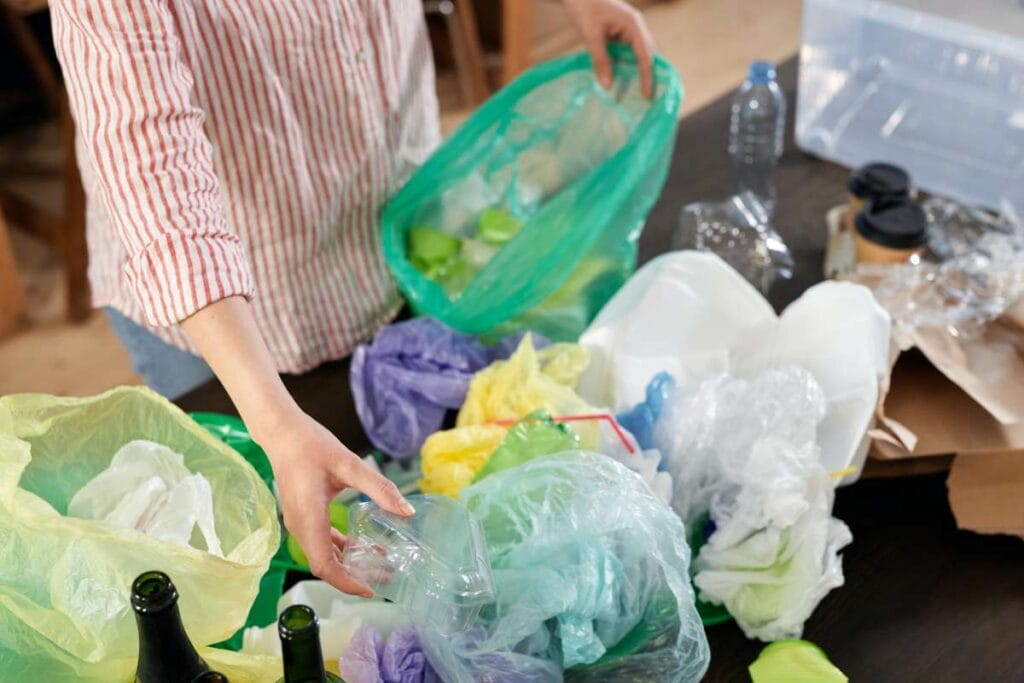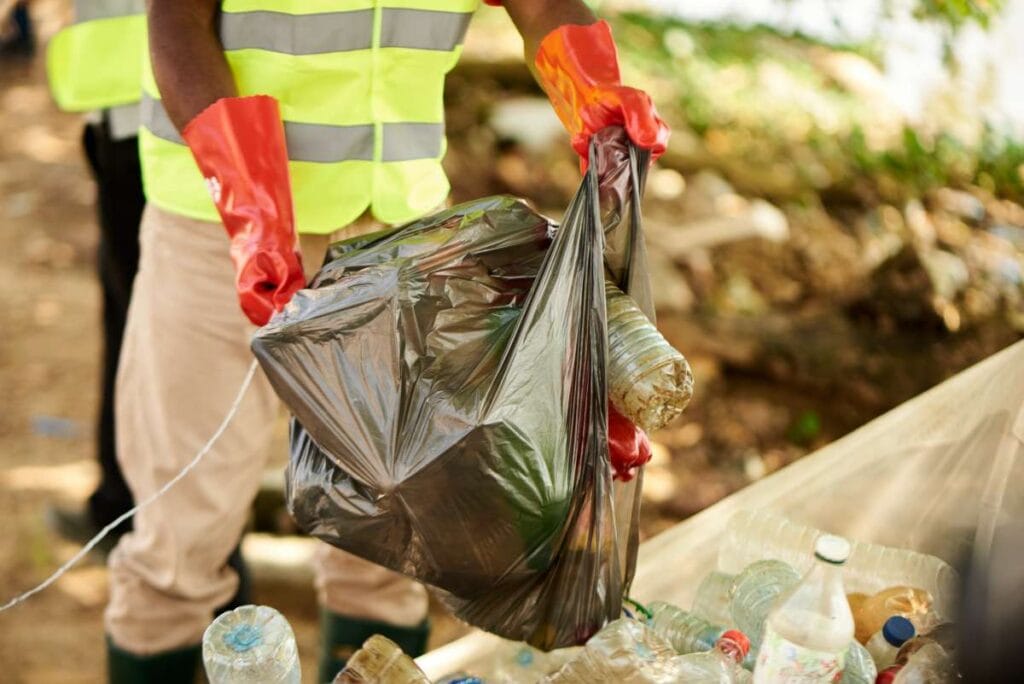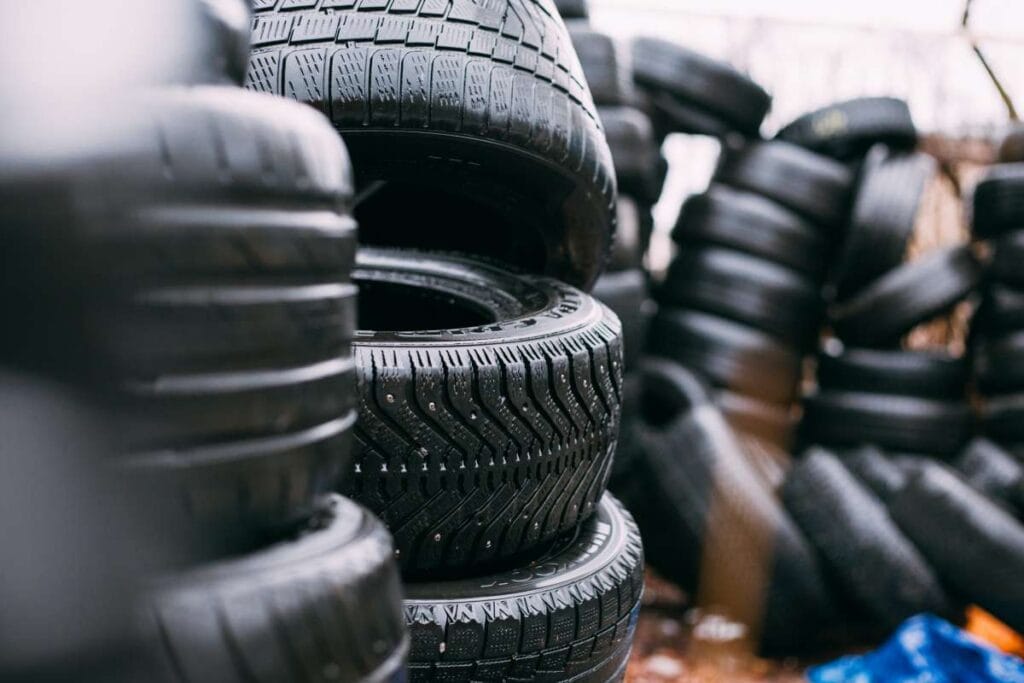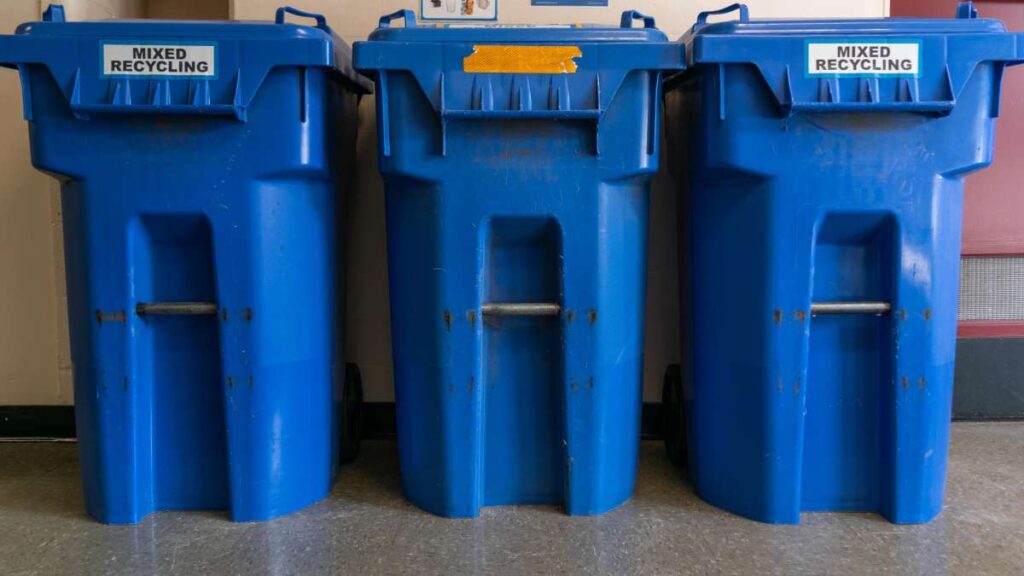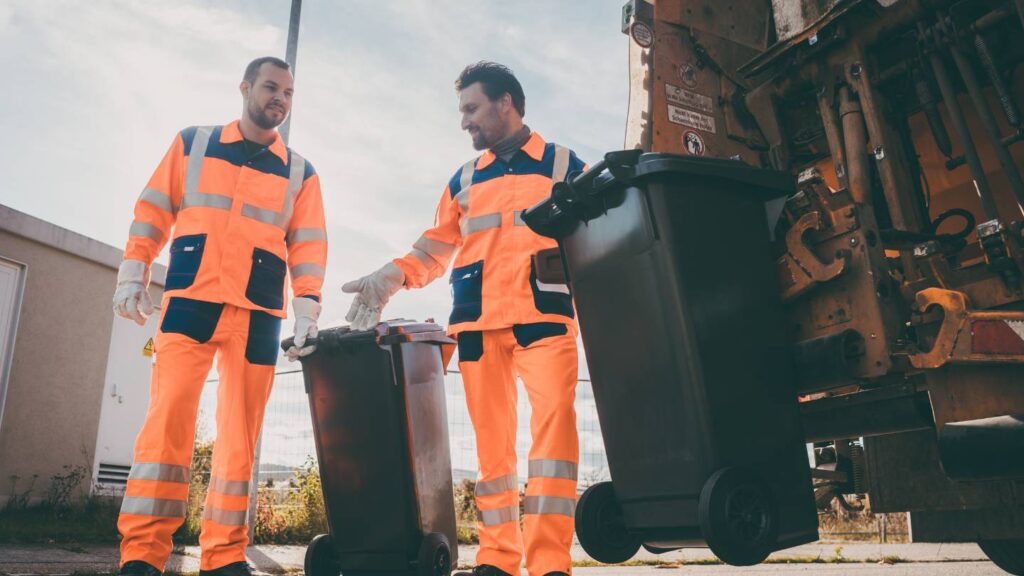To protect the environment and lessen our carbon footprint, proper trash disposal is crucial. Waste production totals billions of tonnes annually, causing serious problems for the environment and accelerating global warming. We can all do our part to ensure a sustainable future by implementing some basic, commonsense practices, such as recycling and composting.
This manual's stated objective is to serve as a helpful resource with regard to learning how to dispose of trash in a way that minimises environmental impact. There are easy things that everyone, from business owners to concerned citizens to people living in single-family homes, can do to improve the planet.
What Is A Carbon Footprint
Human activities contribute to the emission of greenhouse gases, leaving behind a significant carbon footprint. This environmental indicator measures the direct and indirect release of greenhouse gases such as carbon dioxide (CO2), nitrogen oxide (N2O), methane (CH4), perfluorocarbons (PFCs), hydrofluorocarbons (HFCs), and sulphur hexafluoride (SF6).
The World Meteorological Organization (WMO) has reported that in 2019, atmospheric greenhouse gas concentrations reached a new record high. The current levels of CO2 in the atmosphere are comparable to those observed over three million years ago when the Earth's temperature was approximately 3 °C higher, and sea levels were 10 to 20 meters higher. The Global Footprint Network reveals that carbon footprints continue to escalate, having multiplied by a factor of 11 since 1961. At present, carbon emissions account for sixty per cent of all human-induced environmental impacts.
How Is My Carbon Footprint Measured?
The sum of a person's activities that release glasshouse gases each day is their "carbon footprint." Common features of such ways of life include:
- Transport use
- Electricity use
- Dietary choices
- Purchasing habits
- General waste
Personal carbon footprint calculations have never been simpler. To determine your personal carbon footprint, use one of the many available online tools.
Why Is It Important To Know Your Carbon Footprint?

Those who leave a larger carbon footprint contribute more to climate change and global warming.
The largest carbon emitters on a global scale must be targeted directly, but we should also examine our own roles.
By taking measures to lower our own carbon footprints, each of us can help bring down the demand for these sectors. Many people making modest adjustments to their daily routines can send a strong message that we will not tolerate "business as usual" and will not accept the status quo.
Ways To Reduce Your Carbon Footprint And Waste Output
Cut Out Plastic
More plastic than fish is expected to be floating around in the world's oceans by 2050, according to the United Nations. Our current plastic and plastic packaging consumption rate is unsustainable. Paper bags, metal straws, and non-plastic alternatives should be used instead of plastic ones. Reduce your plastic usage by switching to stores that don't use it. Help out with community cleanups of beaches and parks. Keep your environment clean by picking up trash as you go along your day.
Minimise Food Waste
Food waste can be minimised in a variety of ways. Tossed food scraps typically wind up in landfills, where they decompose and release vast quantities of the glasshouse gas methane. Methane contributes to global warming. Compost your leftover organic food and use it to water your plants. Complete your meals when eating out or ordering takeout. Put perishables away in a cool, dry place, like the pantry or the fridge. Doing weekly meal preparation will help you shop for only what you need, so you can save money.
Save Water
Water scarcity is no secret in South Africa; in fact, citizens across the country have experienced shortages in recent years. South Africans must always be mindful of water conservation, not just during times of drought. Don't waste water by flushing the toilet too often. Don't spend more than two minutes in the shower. Put in water-saving faucets for the sink and shower. After you've finished using it to brush your teeth or take a shower, save the water in your sink to flush the toilet or wash your car.
Use Eco-Friendly Products
Make the switch to environmentally friendly shampoos, detergents, and dish soaps. Choosing products with less phosphate is preferable for the health of our lakes, rivers, and seas. Phosphates contribute to algae blooms, which in turn reduces oxygen levels in the water, killing fish and other aquatic organisms. Eco-friendly cleaning supplies are readily available in South Africa, as many domestic manufacturers and retailers have recently introduced them to the market.
Fertilise Your Garden
It is especially important to tend to your garden during the colder months. Start a compost pile with your kitchen's organic waste and vegetable scraps. You can feed your plants with this compost. Plants, lawns, and trees can benefit greatly from compost because it is a natural fertiliser. You can also use traditional fertilisers to replenish the soil's nutrient supply. Plants help mitigate the effects of global warming by soaking up excess carbon dioxide in the air.
Grow Vegetables And Herbs
Following up on the prior suggestion, increase your garden plantings. Find out what kinds of plants thrive in your area and don't need a lot of water. When starting a garden, these are your best bets. Plant some tomatoes, carrots, spinach, lettuce, and beans in a garden. Plant some herbs in your garden. Saving money on gas and time spent travelling to the grocery store is a nice bonus of growing your own fresh produce and herbs.
Reduce Electricity Usage
Try to reduce how much power you use. When leaving a room, make sure to turn off the lights. When you're not watching TV or using your phone, turn it off and unplug the charger. Have a romantic dinner by candlelight for two even if the power is out. Instead of getting an oil heater or an electric bar heater, go with a gas heater. Don't waste time boiling water for an entire pot when you only need enough for one cup of tea or coffee.
Buy Local
You should do your shopping either at the local store or at a supermarket you pass by on the way home. Please support your neighbourhood merchants and farmers by shopping at their weekend markets. The fresh food available at these markets is of the highest quality. To reduce the number of times, you must go grocery shopping and stock up on items you know you'll use regularly. Shopping at farmers' markets is another fantastic option for reducing one's plastic footprint.
Reduce, Reuse, And Recycle
The enduring popularity of the well-known phrase can be attributed to various factors. Its simplicity makes it easy to remember, and the guidance it provides remains relevant even today. Implementing the principles of reducing, reusing, and recycling within one's household yields multiple benefits, such as reduced energy consumption and decreased pollution resulting from mining, processing, shipping, and landfilling. A simple act of recycling half of your household waste can prevent the release of approximately 2,400 pounds of carbon dioxide annually.
For those willing to take an extra step, the zero-waste movement introduces two additional R's: "refuse" and "rot." Refusing products from factories that employ child labour and opting for secondhand items instead of purchasing new ones are practical ways to embrace the "refuse" aspect. As for the unconventional "rot," it pertains to the practice of composting. By composting food scraps, eggshells, coffee grounds, tea leaves, paper waste, non-meat leftovers, and even natural textiles, if feasible, individuals can contribute to the cycle of organic waste decomposition and nutrient regeneration. Alternatively, one can utilise composting facilities available in their area for this purpose.
Long-lasting vs. Fast-fashion Clothing
Many individuals find themselves frequently discarding clothes due to their short lifespan. Perhaps they engage in excessive shopping, resulting in the accumulation of items that don't align with their style preferences, ultimately wasting their hard-earned money.
To minimise their environmental footprint, it is advisable to adopt a different approach when purchasing new clothing. Opting for timeless designs crafted from durable materials helps in reducing environmental impact. Avoid succumbing to the fleeting trends of the year and instead choose classic pieces that can be enjoyed for years to come.
When faced with a small hole or imperfection in a beloved pair of pants, it is unnecessary to discard them immediately. Seeking the expertise of a professional tailor can help mend such issues. The cost of repairing a garment is typically affordable, making it a more sustainable and economical choice compared to purchasing brand-new items. By opting for repairs, individuals contribute to waste reduction while also saving money in the process.
Used vs. New
Careful storage doesn't only benefit clothing; it extends to various possessions as well. In the past, people would actively repair broken items rather than simply discard them and replace them with new ones. It's time to revive that mindset and embrace the practice once again. If you have a broken refrigerator, consider exploring local appliance repair services available online to restore its functionality.
By investing a bit more upfront and practising proper maintenance, your car, computer, phone, and other belongings can serve you well for many years. Similar to clothing, it's crucial to prioritise the purchase of high-quality items. Look for reputable manufacturers known for producing durable goods. When considering a purchase, ensure that the companies provide warranties and support for older models, demonstrating their commitment to customer satisfaction and product longevity.
Why Reducing Your Footprint Matters
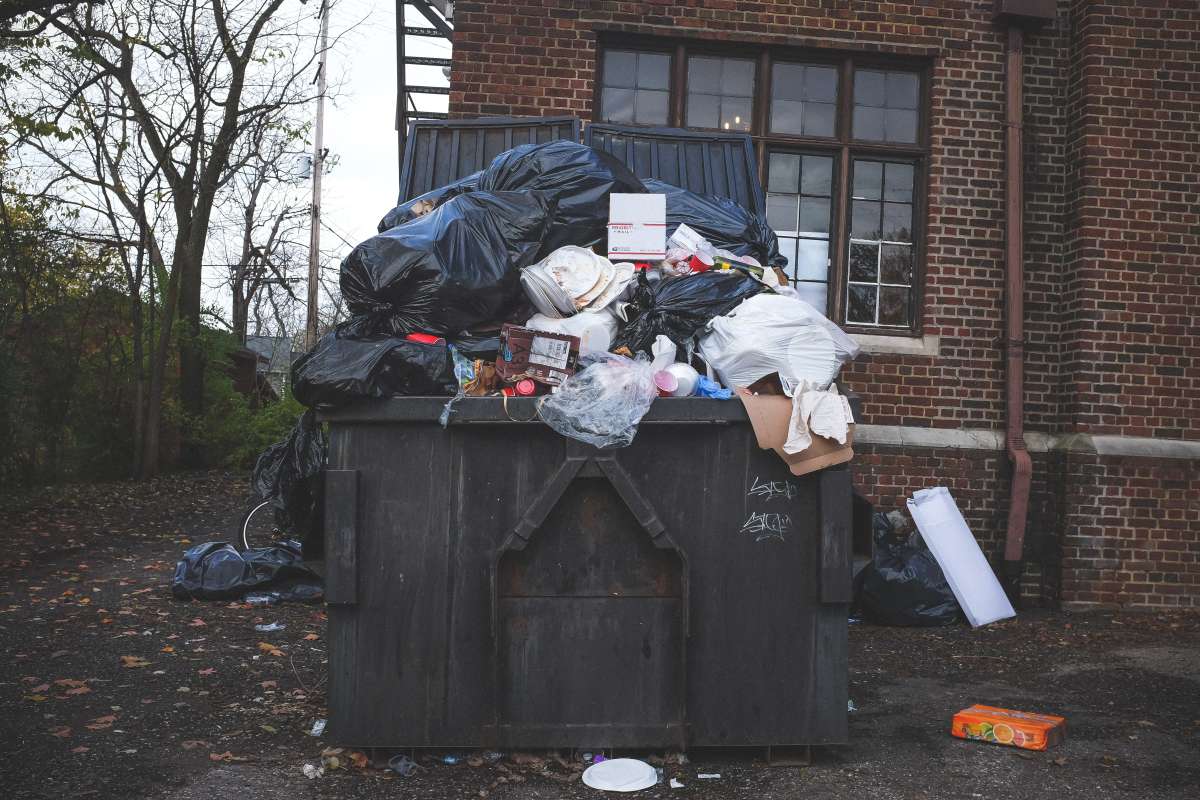
The importance of cutting down on trash and glasshouse gas emissions. The health of our planet, our bodies, and our future as a species are all negatively impacted by our current waste production rates. The following are some advantages gained by cutting down on garbage:
Reducing Greenhouse Gas Emissions
If we generate a great deal of garbage each year, we must also manufacture a lot of new goods each year to serve as replacements. When new products are made in factories, fossil fuels like petroleum are burned, resulting in massive emissions of glasshouse gases. The additional fossil fuels used and additional glasshouse gas emissions produced by transporting these goods around the world cannot be overstated.
Many pieces of evidence point to the harmful effects of glasshouse gases on Earth.
When the sun warms the Earth's surface, the surface emits infrared radiation, but glasshouse gases like carbon dioxide and methane block this radiation. Radiation is trapped by glasshouse gases rather than harmlessly passing through the atmosphere and dissipating into space. It lingers there and gradually heats up the planet until it is no longer a problem.
This warming has many consequences, including but not limited to higher temperatures, higher sea levels, ocean acidification, melting polar ice, habitat destruction, and more frequent and severe weather events.
Protecting The Environment And Human Health
There is a significant negative impact on the environment from the 267 million tonnes of municipal solid waste produced annually, not including industrial waste. More and more land is being used for industrial purposes, which threatens biodiversity because it destroys natural habitats and pollutes ecosystems.
Ninety per cent of the world's biodiversity loss and water stress are attributable to the extraction and processing of fuels, materials, and even food. And the garbage we throw out taints the areas where wildlife used to flourish, making it harder for them to migrate, reproduce, and get by day-to-day.
The air we breathe and our respiratory health are severely impacted by the burning of fossil fuels. Air pollution lowers air quality and can worsen asthma and other respiratory conditions; it also increases the danger of cardiovascular disease, stroke, and premature death.
Leaving Resources For Future Generations
Fossil fuels provide a significant portion of the world's energy needs but are nonrenewable. They took millions of years to form as the remains of extinct prehistoric organisms were squished by the weight of the planet's crust and oceans, and the planet isn't getting any younger. Fossil fuels, such as petroleum and its byproducts, will be irretrievably lost once depleted. Using less fossil fuel and saving more for future generations is a direct result of efforts to reduce waste.
FAQs About Rubbish Removal
A carbon footprint is the total amount of greenhouse gases, primarily carbon dioxide, released into the atmosphere as a result of human activities such as transportation, energy use, and waste disposal.
Improper rubbish disposal, such as throwing recyclable items into the landfill or failing to compost organic waste, can result in the release of harmful greenhouse gases, contributing to climate change. Proper rubbish disposal, on the other hand, can help reduce the amount of waste in landfills and promote sustainable waste management practices.
Some tips include: separating recyclable items from non-recyclable waste, composting organic waste, reducing food waste by planning meals and shopping smarter, and properly disposing of hazardous waste materials.
Hazardous waste materials, such as batteries, electronics, and cleaning products, should not be thrown in the trash. Check with your local waste management facility or government website for information on hazardous waste drop-off locations and collection events.
By reducing your carbon footprint through proper rubbish disposal, you can help reduce greenhouse gas emissions, conserve natural resources, promote sustainable waste management practices, and protect the environment for future generations.
Conclusion
Proper waste disposal is crucial for environmental protection and reducing our carbon footprint, which are the main points of this essay. This guide will teach you how to dispose of rubbish in a way that is safe for the environment. The concentration of glasshouse gases in the atmosphere has increased to new heights, according to the World Meteorological Organisation (WMO), while carbon emissions are responsible for 60% of all human-induced environmental consequences, according to the Global Footprint Network. One can use any number of convenient internet calculators to figure out how much of an environmental impact they are responsible for. Each of us can contribute to reducing demand for these industries by taking steps to reduce our individual carbon footprints.
Key points include suggestions for cutting down on emissions and garbage. Eliminating plastic use, reducing food waste, conserving water, and switching to eco-friendly alternatives are all good examples. Switching to businesses that don't use plastic is crucial because of the predicted amount of trash in the oceans by 2050. Composting uneaten organic food and finishing meals when dining out or getting takeout are two ways to cut down on food waste. It is crucial to be conscious of water conservation in South Africa due to the country's severe water constraints.
In South Africa, you may easily find eco-friendly cleaning products. The most critical points are to use organic fertiliser in your yard, cultivate your own veggies and herbs, lessen your reliance on electricity, and shop locally. Creating a compost pile from food scraps and other organic waste is a vital first step in this direction. Some other essential garden crops include tomatoes, carrots, spinach, lettuce, and beans. It is also vital to save energy by turning off lights and disconnecting chargers when not in use.
Last but not least, one of the best ways to lessen one's use of plastic is to stock up at local farmers' markets. Because of its clarity and practicality, the phrase "Reduce, Reuse, and Recycling" has gained popularity in recent years. Recycling at least 50% of all trash is essential for cutting down on pollution and energy usage. The zero-waste movement also includes the words "refuse" and "rot" in its lexicon. Choose classic styles made from long-lasting fabrics, and have minor flaws expertly repaired by a tailor to lessen your influence on the environment.
People help the environment and their wallets by choosing repairs over replacements. It's necessary to invest in high-quality storage solutions to ensure the safety of your garments and other belongings. Look for dependable brands that offer warranties and services for older devices if you want to lessen your environmental impact. For the sake of our planet, our bodies, and our species' survival, reducing waste and glasshouse gas emissions is crucial. Carbon dioxide and methane, which are examples of glasshouse gases, trap infrared radiation and cause the Earth to warm.
Increases in temperature, sea level, ocean acidity, melting polar ice, destruction of habitat, and increased frequency and severity of weather events are only some of the many effects of global warming. Municipal solid waste amounts to 267 million tonnes per year, posing a threat to biodiversity and polluting ecosystems, despite efforts to reduce waste. Most of the energy that the world uses comes from fossil fuels, which are unfortunately nonrenewable and so lost forever after they are used up. Efforts to reduce waste are vital if we are to conserve resources for future generations.
Content Summary
- Proper rubbish disposal is crucial for reducing our carbon footprint and protecting the environment.
- Recycling and composting are basic practices that can contribute to a sustainable future.
- Human activities contribute to the emission of greenhouse gases, leaving behind a significant carbon footprint.
- Atmospheric greenhouse gas concentrations reached a new record high in 2019, with CO2 levels comparable to those from three million years ago.
- Carbon emissions account for sixty per cent of all human-induced environmental impacts.
- Personal carbon footprints can be measured based on activities such as transport use, electricity use, dietary choices, purchasing habits, and general waste.
- Knowing your carbon footprint is important as it helps understand your contribution to climate change and global warming.
- Cutting out plastic consumption and opting for non-plastic alternatives is essential.
- Minimising food waste through composting and mindful meal preparation can help reduce greenhouse gas emissions.
- Conserving water is crucial, even during times of water scarcity, through practices like using water-saving faucets and reusing water.
- Switching to eco-friendly products, such as shampoos and detergents, reduces phosphate pollution in water bodies.
- Fertilising gardens with compost and growing vegetables and herbs helps mitigate the effects of global warming.
- Reducing electricity usage by turning off lights and unplugging devices when not in use can lower energy consumption.
- Buying locally supports local merchants, reduces plastic footprint, and cuts down on transportation emissions.
- Implementing the principles of reducing, reusing, and recycling leads to reduced energy consumption and decreased pollution.
- The zero-waste movement emphasises "refusing" products and composting as additional ways to minimize waste.
- Opting for long-lasting and timeless clothing reduces environmental impact and saves money.
- Repairing clothing items instead of discarding them contributes to waste reduction and cost savings.
- Embracing the practice of repairing broken items extends their lifespan and reduces waste.
- Investing in high-quality items and prioritising durability helps reduce waste and promotes product longevity.
- Cutting down on trash and greenhouse gas emissions has multiple benefits for the environment, human health, and the future of the planet.
- The production of new goods to replace discarded items leads to significant greenhouse gas emissions.
- Greenhouse gases trap radiation, causing various consequences such as higher temperatures, sea level rise, and severe weather events.
- Improper waste disposal threatens biodiversity, pollutes ecosystems, and impacts wildlife habitats.
- Burning fossil fuels for energy production negatively affects air quality and respiratory health.
- Fossil fuels are nonrenewable resources, and reducing waste helps conserve them for future generations.
- Municipal solid waste production and industrial waste contribute to environmental degradation.
- Biodiversity loss, water stress, and pollution are linked to the extraction and processing of fuels, materials, and food.
- Air pollution from burning fossil fuels increases the risk of respiratory conditions, cardiovascular disease, and premature death.
- Efforts to reduce waste contribute to leaving resources for future generations and saving nonrenewable fossil fuels.
